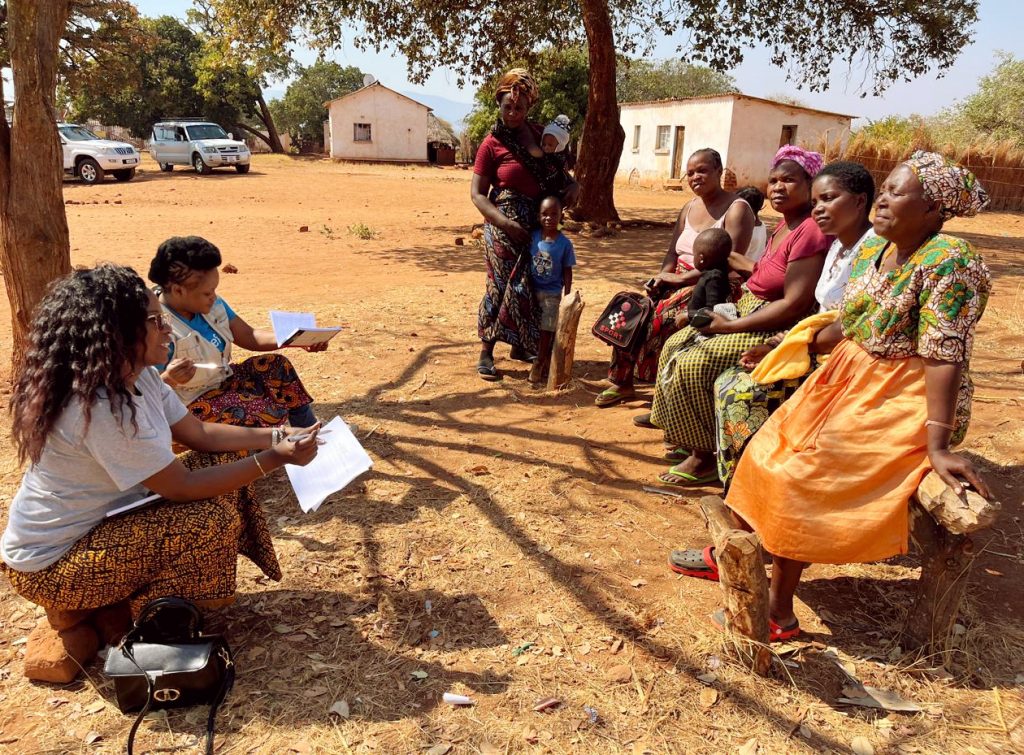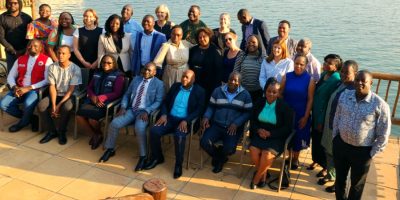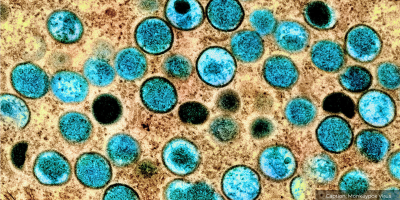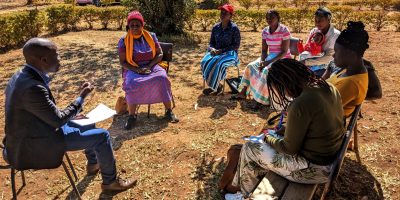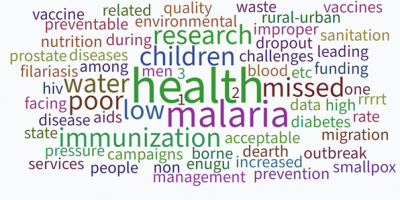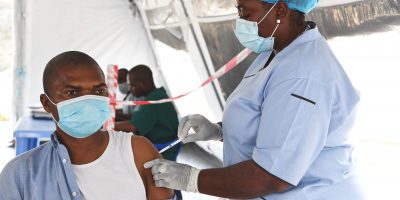UNICEF Zambia is stepping up efforts to strengthen evidence-informed emergency preparedness and response in collaboration with government ministries and partners, through the technical support of the Collective Service. In 2024, six Rapid Qualitative Assessment (RQA)s were conducted to inform community engagement activities and response actions for cholera and drought. In July 2024, UNICEF through the support of the Collective Service, conducted RQA training and field work with national academic, government, UN and CSO partners responding to the ongoing drought emergency. The training will be cascaded further to support establishment of RQA core teams at national and subnational levels. The most recently conducted RQA took place in Lusaka, Zambia in conjunction with a training with national academic, government, UNICEF and Red Cross partners.
Informing emergency response in Zambia
Since January, UNICEF Zambia has supported the University of Zambia (UNZA), School of Public Health-Health Promotions and Education Department, Ministry of Health, Zambia National Public Health Institute, Disaster Management and Mitigation Unit (DMMU), and Zambia Red Cross to conduct rapid qualitative assessments during public health emergencies and humanitarian crises. The data collected during these assessments – and the pool of newly trained assessors – has been important for informing emergency response pillars, including the Risk and Communication and Community Engagement (RCCE) Pillar, to adapt their response activities to meet community needs.
As stated by Nejmudin Kedir Bilal, UNICEF Deputy Representative to the Republic of Zambia:
“UNICEF understands the vital role RQAs play in understanding community perceptions and behaviours during emergencies and informing response actions and policy. We further recognise the significance of building long-term capacity of higher learning Institutions such as UNZA and Civil Society partners in spearheading Rapid Qualitative Assessments to generate evidence, especially during emergencies.”
As stated by trained assessor Mungabo Chongo, MA student, School of Public Health, UNZA:
“It had barely been two weeks, and the findings of our RQA were already at the office of the Vice President and had been discussed at the UN headquarters in Geneva. Programmatic changes were already being adapted and changed on the ground in Zambia. Risk communication and community engagement activities were evolving into something that had the community at its core and was the epitome of culturally competent work. I had never in my life seen assessment results taken up so quickly.”
Progressively building capacity whilst adapting
This type of specialized RQA training did not come to be overnight.
In 2021, the Collective Service rolled out a comprehensive seven module (with 27 individual sessions) training package entitled ‘Using Social Science for Public Health Emergency Preparedness and Response’. This comprehensive training was compiled with the targeted assistance of practitioners from several health and humanitarian institutions skilled in applying operational social science insights in crises contexts.
From 2022-2023, the social science training package was piloted and adapted for national partners in six countries in the East and Southern Africa Region (ESAR) – Malawi, Zimbabwe, Eswatini, Lesotho, Eritrea and South Sudan. In 2022, the International Federation of Red Cross and Red Crescent Societies (IFRC), instituted a ‘Trainer-of-Trainer‘ version of the course which has since been rolled out for Regional Office IFRC Community Engagement and Accountability staff in Abidjan (French version), Budapest, Nairobi, and Panama.
One of the key lessons learned from delivering these trainings was the need to break the comprehensive modules down into smaller training segments, and to incorporate a practical component of primary data collection and analysis for applying classroom learnings in real-world (time-sensitive) emergency settings.
During the 2023 outbreak of cholera in Malawi, national Collective Service partners in the ESAR region – with technical assistance from UNICEF and IFRC regional offices – first began to implement RQAs as an adapted version of the social science training. The first two rounds of RQAs in Malawi (conducted in January and March 2023) were in response to a request by the Ministry of Health for RCCE support from the Collective Service. Operational RQA findings assessed health-seeking behaviours and referrals of communities towards cholera treatment centres.
As stated by Mavuto Thomas, Health Educations Services, Deputy Director, Ministry of Health, Malawi:
“Originally we were not using ORPs [Oral Rehydration Points] but following the outcomes of the RQA and the community feedback received on the importance of this resource, the Ministry of Health developed and established the ORPs and used community engagement to ensure that communities were aware, and understood the importance of, this resource.”
Subsequent RQA trainings have expanded beyond cholera response and are currently being piloted with targeted sessions and tools focused on the current drought response in Zambia and Zimbabwe.
As stated by recent course participant in Zimbabwe, Tariro Faith Mukupe, a Data Analyst with Muthengo Development Solutions:
“When every minute counts, context is everything. The RQA training taught me to harness the power of rapid qualitative assessments to inform swift and effective action, digging deeper to gather meaningful data and make informed decisions that truly make a difference. Now I’m able to adapt RQA techniques in an emergency to develop people-centred solutions that are not only swift but also relevant, sustainable and community-driven.”
One of the key lessons learned from conducting several rounds of RQAs in Malawi, Zambia and Zimbabwe – for multiple types of emergency response operations – has been the need supplement short intensive training periods of face-to-face learning (e.g. 2-5 days) with longer-term online and remote mentoring sessions, and to develop the data advocacy skills of participants for the uptake of evidence-based recommendations.
Sustaining integration
Collective Service partners in ESAR are now looking to systematise the use of RQAs as a routine part of emergency response operations. There is a critical need to support country stakeholders to recruit and retain skilled anthropologists and social scientists capable of providing rapid and operational insights. However, this requires investing in long-term capacities and expertise at the national-level to collect, analyze, and use community data systematically and across multiple response pillars.
Opportunities to advance this longer-term social science training agenda will be discussed by national representatives from Malawi, Zambia and Zimbabwe at an upcoming cross-border learning event hosted by Zambia in August 2024.
Development of the Collective Service social science training package was led by Anthrologica with content co-produced with partners from the Social Science in Humanitarian Action Platform (SSHAP), the Institute of Development Studies (IDS), Translators Without Borders (TWB), Médecins Sans Frontières (MSF), London School of Hygiene and Tropical Medicine (LSHTM), the International Federation of Red Cross and Red Crescent Societies (IFRC), the Rapid Research Evaluation and Appraisal Lab (RREAL) at University College London (UCL), UNICEF’s Social Science Analytics Cell (CASS), UNICEF’s Social Science for Community Engagement (SS4CE) team, US Centers for Disease Control and Prevention (CDC), Oxfam and READY at Johns Hopkins University (JHU).



